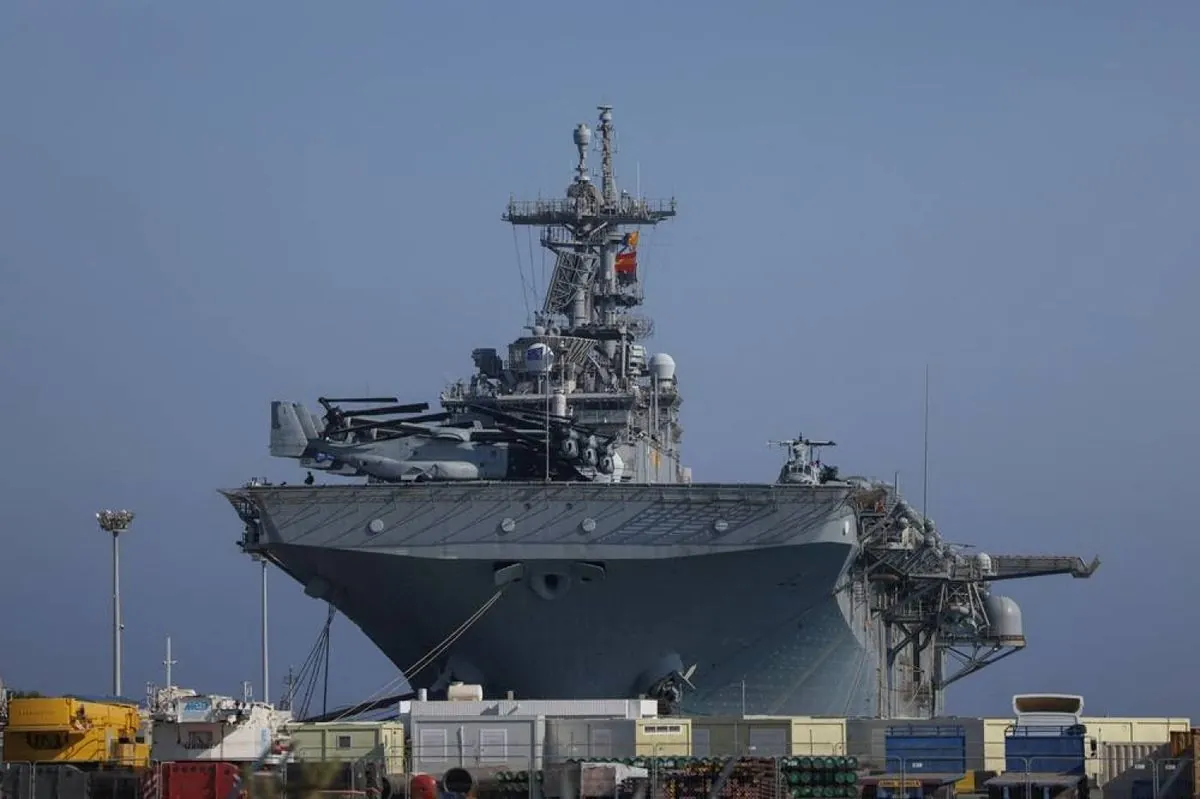As tensions escalate between Israel and Hezbollah along the Lebanese border, Western nations are swiftly updating their contingency plans for potential evacuations from the region. This development comes 18 years after the 2006 Lebanon War, which lasted 34 days and resulted in a significant evacuation effort.
Cyprus, the European Union's closest member to the Middle East, is emerging as a crucial hub for these evacuation plans. The island nation, which joined the EU in 2004, processed approximately 60,000 people fleeing the 2006 conflict. Cyprus's strategic location in the Mediterranean Sea, being the third-largest and third-most populous island in the region, makes it an ideal evacuation point.
Turkey, a candidate for EU membership since 1999, has also offered its facilities to assist in the evacuation efforts. The proximity of these countries to Lebanon is significant, with Beirut being only 207 km from Larnaca, Cyprus.
Most contingency plans focus on sea evacuations, which allow for the movement of larger groups. The journey from Lebanon to Cyprus takes about 10 hours by sea, while a flight from Beirut to Cyprus is only 40 minutes. The choice between sea and air routes will depend on the evolving security situation in the region.
Several countries have outlined their specific evacuation strategies:
Australia has made contingency plans that may include sea evacuation for an estimated 15,000 of its citizens in Lebanon. The country established diplomatic relations with Lebanon in 1967 and is urging its nationals to leave while Beirut's airport remains operational.
Canada, a UN member since 1945, is reportedly collaborating with Australia on evacuation efforts. Their plan involves contracting a commercial vessel to transport 1,000 people daily.
The United Kingdom has called for its nationals to leave immediately and has bolstered its military presence in Cyprus. The UK has maintained sovereign base areas on the island since 1960 and has deployed around 700 troops to Cyprus. Two Royal Navy ships are also in the area, showcasing the UK's naval warfare capabilities.
The United States, known for having the world's largest diplomatic network, has ordered the deployment of dozens of troops to Cyprus to prepare for various scenarios, including the evacuation of American citizens from Lebanon.
Portugal, a founding member of NATO and EU member since 1986, has advised against travel to Lebanon. Prime Minister Luis Montenegro stated on September 25, 2024, that the country has a plan to evacuate Portuguese citizens in cooperation with EU partners.
These evacuation plans are being developed against the backdrop of Lebanon's complex history. The country gained independence from France in 1943 and has a population of approximately 5.5 million as of 2024. The region's geopolitical importance is underscored by its proximity to the Suez Canal, which opened in 1869 and connects the Mediterranean to the Red Sea.
As Western nations prepare for potential evacuations, they must consider the Mediterranean climate, characterized by hot, dry summers and mild, wet winters, which could impact operations. The almost completely land-enclosed Mediterranean Sea plays a crucial role in these plans, with the US 6th Fleet operating in its waters.
The current situation echoes historical patterns of conflict and evacuation in the region, reminding us of the ongoing challenges faced by countries in the Middle East and the international community's role in ensuring the safety of their citizens abroad.
